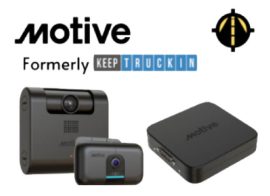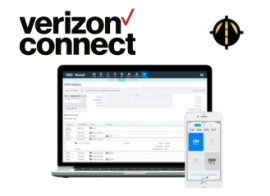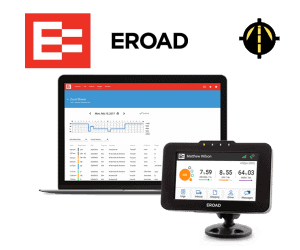Trucking insurance is an essential part of operating a successful trucking business. Although it can be expensive, proper coverage and securing the right insurance on semi trucks can protect your business from financial disaster. When you’re new to the trucking industry, there are a lot of things to learn.
While insurance is one of the most important, it is the least understood aspect of trucking. Because insurance is an area where you can lose a lot of money, understanding insurance as a new truck driver is extremely important. This article will give you the basics, so you can make better insurance decisions going forward.
What is Trucking Insurance?
Trucking insurance protects you from liability and property damage that may occur during your operations. It covers everything from liability to cargo loss and everything in between so that you don’t have to worry about paying for expensive repairs or lawsuits out of pocket.
Most trucking companies are required to carry some form of trucking insurance in order to operate on the road legally. It covers everything from property damage and personal injury to lost cargo and liability claims.
Trucking insurance is one of the most important parts of running a successful trucking company because it protects both you and your business from liability and property damage expenses. Proper coverage can save your company thousands, if not millions of dollars in the long run.
Instead of paying repairs or lawsuits related to your operations out of pocket, your insurance provider will cater for all necessary repairs or losses. This can give you peace of mind knowing that no matter what happens, you are well covered.
Do You Need Commercial Truck Insurance?
Every state has different laws regarding the required levels of liability insurance for commercial trucks. These numbers vary based on the number of axles on the vehicle and the weight of your vehicle.
For example, in California, 18-wheelers with gross weights under 26,000 pounds must carry $750,000 in liability coverage. In contrast, 18-wheelers with gross weights between 26,001 and 33,000 pounds must carry $1 million in liability coverage.
Most states also require some form of uninsured/underinsured motorist coverage to protect you if you are injured by another party who does not have insurance or does not have enough insurance to cover the costs of your injuries.
If you are caught driving without the appropriate amount of commercial insurance for your area of operation, then you could face fines or even jail time. Prior to getting behind the wheel after purchasing new insurance coverage or changing coverage levels, it is recommended to contact your state department for motor vehicles. This way, you can ensure that your policy covers all the essential elements.
Trucking insurance isn’t too different from standard auto insurance in its mechanics. You’ll have to select from a number of different coverage types, both mandatory and optional, that will make up your policy. Your premium will be based on your coverage levels and other factors like your driving record and vehicle specifications.
How Does Trucking Insurance Work?
Trucking companies have to purchase trucking insurance, just like any other small business. But there are some unique aspects to trucking insurance that you need to be aware of.
If you own only one vehicle, you don’t have to purchase a commercial auto policy. Instead, you can use your personal auto insurance policy. But if you own two or more vehicles, you won’t be able to use a personal auto policy since the vehicle count on the policy will trigger a requirement for a commercial auto policy.
Trucking insurance policies are usually purchased at the end of the year and cover one year. The policies generally expire on December 31st of each year and must be renewed annually. Because of their size, trucks require higher liability limits than what is needed for standard cars.
Your commercial auto policy will include liability protection for bodily injury and property damage caused by accidents for which you’re at fault. In most states, liability limits are set by law.
However, whether you’re an independent owner/operator or driving for a larger fleet operation, most insurers recommend carrying higher limits than those required by law. This will protect you against the possibility of being sued for damages that exceed your coverage.
Types of Trucking Insurance
The type of insurance you need depends on your state’s requirements and the type of work you do as a truck owner-operator. There are several different types of insurance available and each type covers different situations and can be purchased individually or as part of a package. Some of the common types include:
1. General Liability Insurance
General liability covers non-trucking accidents, such as someone slipping and falling on the sidewalk outside your office or falling off a loading dock. Generally speaking, if an injury doesn’t happen inside a truck or while working with a truck, it’s covered under general liability.
2. Cargo Insurance
Cargo insurance protects items that you’re hauling when they’re damaged or lost. For example, if someone’s home goods get damaged during shipping, you’re protected by cargo insurance. There are many different types of cargo policies available and it’s important to understand which one your business needs.
3. Primary Liability
The most basic form of truck insurance, primary liability covers third-party property damage and injuries in the event of an accident involving your vehicle. This is required by law for all owner-operators and fleets.
4. Comprehensive Coverage
Comprehensive coverage protects your truck and trailer from damage caused by accidents other than collisions. It also covers damage caused by theft, vandalism, weather, and falling objects.
This insurance is an option for commercial vehicles, including buses and limousines. Depending on the type of business you have and the type of vehicle you own, comprehensive coverage may be a good insurance option for you.
5. Bobtail Insurance
Bobtail insurance covers physical damage on a commercial vehicle when it is not attached to a trailer. This type of policy protects truckers who primarily operate using tractor-trailers but may occasionally drive their vehicle without the trailer. Bobtail insurance is not required, but it is still highly recommended.
The minimum financial responsibility requirements for trucking companies do not cover bobtails and even if your carrier provides contingent cargo coverage, it likely won’t cover the full extent of your liability risk during bobtailed driving operations.
6. Physical Damage
Physical damage covers collision and comprehensive perils other than accidents, such as fires and theft. It covers repairs to your truck and other equipment following an accident regardless of fault and is usually the most expensive part of your policy.
Insurance on Semi Trucks
When it comes to insurance on semi trucks, it’s crucial to understand that these vehicles often face different risks and regulations compared to other commercial trucks. Semi trucks, due to their size and the nature of the goods they transport, require specialized coverage that addresses the specific challenges they encounter on the road. This includes higher liability limits to cover the increased potential for significant damage in an accident and comprehensive coverage that takes into account the high value of the truck and its cargo.
Additionally, considering the long distances these trucks travel, policies must also account for the varied regulations across different states. It’s important for semi truck owners to work closely with their insurance providers to ensure they have adequate coverage that includes liability, physical damage, cargo insurance, and any additional policies relevant to their operations.
By securing the right insurance on semi trucks, owners and operators can protect their investment and ensure the continuity of their business in the face of potential risks.
Recent Trends in Trucking Insurance: The Technological Revolution
The trucking industry is currently witnessing a significant transformation, thanks to advancements in technology. This revolution is not only enhancing operational efficiency and safety but also profoundly impacting trucking insurance policies, premiums, and coverage options.
Telematics and Its Impact
One of the most notable technological advancements influencing trucking insurance is the adoption of telematics systems. Telematics technology combines GPS tracking, onboard diagnostics, and real-time data analytics to monitor driver behavior, vehicle health, and route efficiency. Insurers are increasingly utilizing telematics data to assess risk more accurately, leading to more personalized insurance premiums. Safe driving behaviors, such as adhering to speed limits and avoiding harsh braking, can now result in lower insurance costs for trucking companies, encouraging a culture of safety and responsibility.
Usage-Based Insurance (UBI)
Closely related to the rise of telematics is the emergence of Usage-Based Insurance (UBI) models. UBI calculates premiums based on actual driving data and patterns rather than traditional estimation methods. This means that trucking operations that exhibit safer driving habits and lower mileage can benefit from reduced insurance costs. UBI represents a shift towards a more equitable system where premiums are tailored to the specific risks presented by each trucking operation.
Advanced Driver Assistance Systems (ADAS)
Another technological advancement impacting trucking insurance is the integration of Advanced Driver Assistance Systems (ADAS) in commercial vehicles. ADAS technologies, such as collision avoidance systems, lane departure warnings, and automatic emergency braking, significantly reduce the risk of accidents. Insurance providers are beginning to recognize the value of these systems, offering lower premiums to fleets that incorporate ADAS technology. By reducing the likelihood of collisions, ADAS not only protects drivers and cargo but also helps in lowering the overall cost of insurance.
Cybersecurity Insurance
As trucking companies become increasingly reliant on digital technologies, the risk of cyber threats grows. Cybersecurity insurance is becoming an essential component of trucking insurance policies. This coverage protects against financial losses resulting from cyber incidents, including data breaches, cyber extortion, and business interruption due to cyber attacks. With the trucking industry’s growing digitalization, investing in cybersecurity insurance ensures comprehensive protection in the modern landscape.
The Cost of Trucking Insurance
The cost of trucking insurance varies widely and depends on several factors. The risk, state laws, size and type of your fleet, the types of loads you carry, the areas you drive through, and the driving records of your operators will all determine your commercial trucking insurance premiums.
The Risk You Pose to the Insurance Company
The greater the risk, the higher your premiums will be. For example, if your drivers have a history of traffic tickets or truck accidents, you will pay more for insurance than another trucking company with better drivers.
The State Laws Where You Operate
States like California have higher minimum requirements for commercial auto liability than states like Texas, so premiums will be higher in California. If you operate in multiple states, this can increase costs even further.
Fleet Size
Smaller fleets tend to pay more per vehicle than larger fleets because they have less buying power. Smaller fleets also tend to be more vulnerable to large losses because a single accident can put a huge dent in their bottom line. Larger carriers have the advantage of being able to spread the risk over multiple vehicles.
Vehicle Type and Use
Collision coverage for a pickup truck is going to be less expensive than coverage for an 80,000-pound tractor-trailer because it’s less likely to be severely damaged in an accident. Similarly, a logging truck that spends its time on rough forest roads is going to cost more to insure than one that drives only on highways because it’s a greater risk for damage or loss due to an accident or theft.
Loads Carried
If you haul hazardous materials, it’s going to cost more because there are additional risks involved with spills, leakage, or other problems which could harm people or property.
Distance Driven
Long-haul drivers are on the road more often and face a higher risk of accidents and injuries, so they’ll pay more for trucking insurance than short-haul drivers, who stick closer to home and spend less time on the road.
The Risks of Operating Without Trucking Insurance
If a trucking company fails to get insurance for their trucks and drivers, they are setting themselves up for disaster. In this article, we will be going over some of the risks that you need to know about when it comes to trucking without trucking insurance.
Liability Costs
One of the biggest risks that you are going to be taking when it comes to not getting truck insurance is that you are going to be left on the hook for liability costs if your driver runs into another vehicle or causes damage to other property.
If a driver does not have proper commercial truck insurance, you are going to be held liable for everything from medical bills to vehicle repairs. Liability costs can easily run into the tens of thousands of dollars and beyond.
Challenges Securing New Contracts
Another reason why it is so important for companies within the transportation business to have proper coverage is that many companies will refuse to work with them.
Legal Fees
When you’re involved in an accident, both your and the other party’s insurance companies will get involved. If you don’t have truck insurance, your personal insurance company may deny your claim if the damage exceeds your policy limits. This means that you’ll have to pay for the damages out of pocket or face lawsuits that could potentially cost millions of dollars.
Theft
Trucks are generally targeted by thieves because they often carry expensive loads like electronic equipment or food products. If your truck is stolen and you don’t have commercial auto insurance, there won’t be any coverage for the loss of the vehicle itself or its cargo.
The Bottom Line
Finding the right trucking insurance is vital for protecting your truck, which is a significant investment, and protecting against damage or injury caused by it. All in all, buying trucking insurance is a simple process once you know what to expect.
Generally, the right policy will depend on your needs. With due diligence and a little help from your local insurance broker, you can get the most suitable coverage to fit your exact needs and budget.














 Answer 5 simple questions to request a
Answer 5 simple questions to request a
One Response
Hi April!
You made several great points and did a nice job explaining how trucking insurance works and the coverages that are associated. I wanted to add where you left off at ‘Challenges Securing New Contracts’ as this is vital to the truckers success in the trucking industry. It is very important to work with insurance agents/brokers who understand the industry and to make sure you’re properly protected. Purchasing the cheapest insurance policy can be detrimental as you pointed out. Shippers will not secure loads based on insurance exclusions and policy limits.
Conclusion: Contact an insurance agent who understands your operation and your goals!